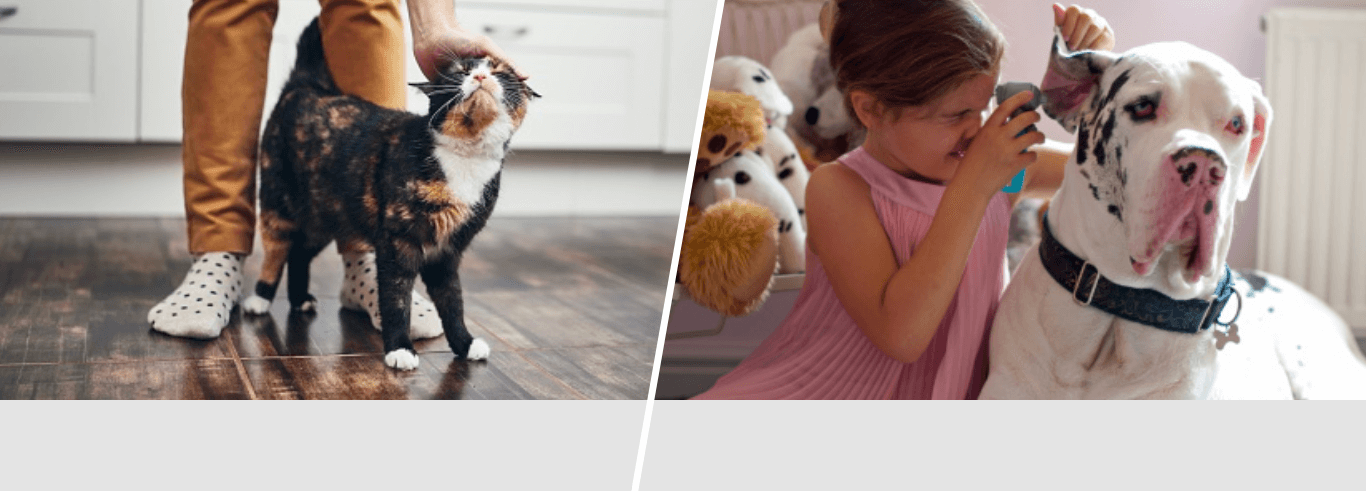Can cats get dementia?
Like humans, animals can see big changes to their body and mind as they grow older. But can cats lose their memory? Unfortunately, memory loss is one of the most common effects of the ageing process in cats. Which is why we’re here to answer your commonly asked questions about dementia in cats and explain how you can help keep your cat’s brain active.
How long is a cats memory?
There is no definite answer to this question, but there have been many studies that back up the idea that cats can remember people and things over long and short periods of time. But just like humans, a cat is more likely to remember an event if it is attached to some extreme emotion, whether positive or negative.
As a rough estimate, Dr Bruce Kornreich, from the Cornell Feline Health Center in Ithaca, New York, says that in cats “short-term memory is anywhere between 5 and 30 seconds”, however, long term memory can last “indefinitely’, depending on the stimulus1.
Does cat memory differ by breed?
Everyone’s cat is unique, and each breed of cat has different traits that make them who they are. While we can’t give a definitive answer about the cat with the best memory, we can use other traits to have a good guess. Memory, for example, is linked to overall intelligence. So, if we look at the cleverest cats, we can go some way to understanding those with the best memory.
Although this might be shocking to cat owners, according to research, there is evidence that cats aren’t the smartest family pet.
Researchers from six different universities around the world conducted a study into the number of neurons in the brains of cats and dogs. Neurons are the way we measure how information is processed, so the more neurons the more intelligent the animal. The results revealed that dogs’ brains had “500 million neurons, more than double the 250 million found in a cat’s brain”2. Sorry feline fans!
Why might my cat be suffering from memory loss?
From improved vet care to nutrition, our cats are healthier and living longer. Nowadays, it’s not uncommon for a cat to live to 20 or 21 years – roughly 96 to 100 in human years.
As cats get older, they can develop something called ‘cognitive dysfunction’. Cognitive dysfunction has many effects and memory loss is just one of them. The chances of your cat developing cognitive dysfunction do tend to increase the older a pet gets. For example, 55% of cats aged 11 to 15 years have some form of cognitive dysfunction and more than 80% of cats aged 16 to 20 years have developed symptoms3. While the side effects may not be nice to see, this is a natural part of the ageing process for many cats, although it will affect some more than others.
What are the symptoms of cognitive dysfunction in cats?
The following behaviours can be symptomatic of cognitive dysfunction in cats:
- Learning and Memory – forgetting old routines or failing to adopt new ones.
- Reduced activity – your cat may appear lethargic or disinterested.
- Confusion and anxiety – your cat may appear disorientated or become fearful.
- Disrupted sleep – they may have altered sleep cycles from their normal.
- Changing relationships – not getting along with a family member or other pet as a new behaviour.
Although most commonly due to ageing, memory loss can also be because of immense stress or trauma. If your pet is showing symptoms after an accident, always consult your vet to check for any injuries.
How do you know if your cat has dementia?
If you’re really worried about your cat’s memory loss, you should always visit a vet. If they are showing the symptoms mentioned above, take them to the vet who will be able to assess the progress of your pet’s condition and give advice based on your cat’s specific needs. They will be able to tell you if your cat has cognitive dysfunction or if their symptoms are related to something else.
How to keep your cat healthy
If you want to keep your feline friend happy and healthy, there are many things you can do to prevent memory deterioration or cognitive dysfunction.
The most important thing is that you keep your pet’s mind active. Here are some of the ways you can make sure they are getting enough stimulation in the home:
- Play games with your cat.
- Take them on walks.
- Introduce new toys that engage your cat’s hunting instincts.
If your pet is struggling with boredom around the home, check out our ways to cure your cat’s boredom – these are certain to keep your feline friend both stimulated and entertained.
If you’re concerned about your cat’s health or wellbeing, it is important to get them insured. Help your cat stay happy and healthy and protect yourself from unexpected vet bills with cat insurance by Argos Pet insurance (provided by Pinnacle Insurance Ltd).
 Sorry, our lines are now closed
Sorry, our lines are now closed



